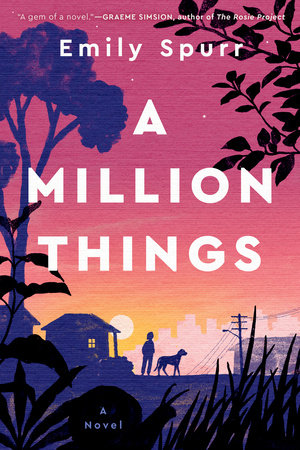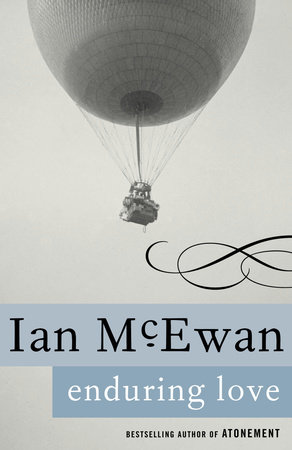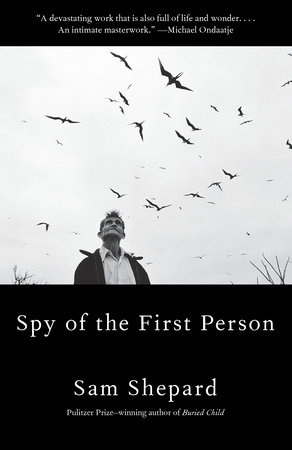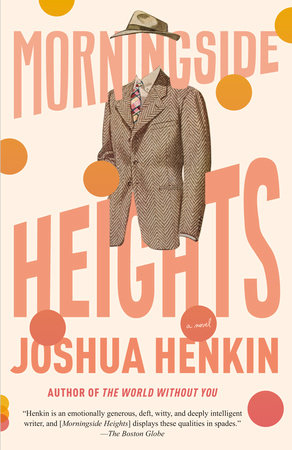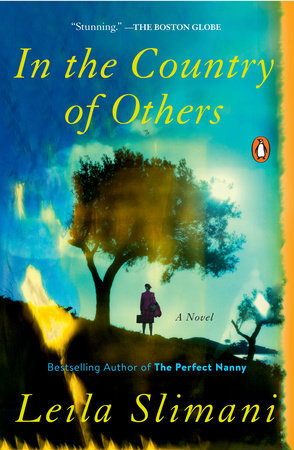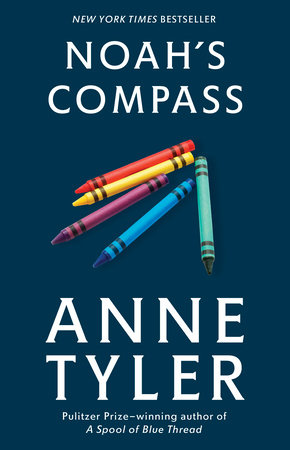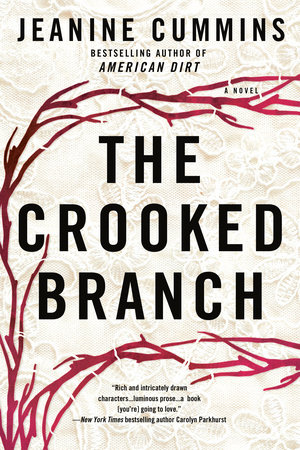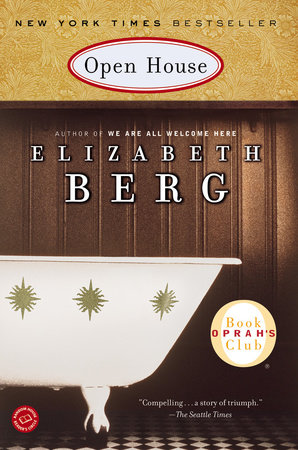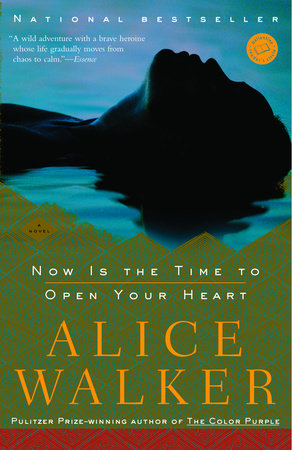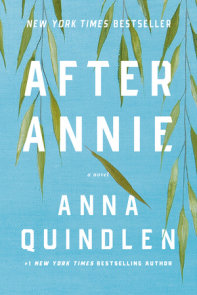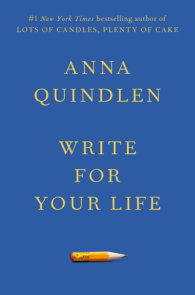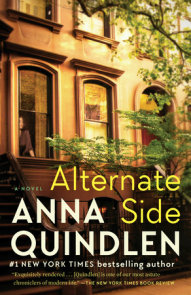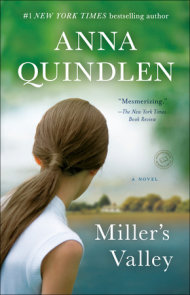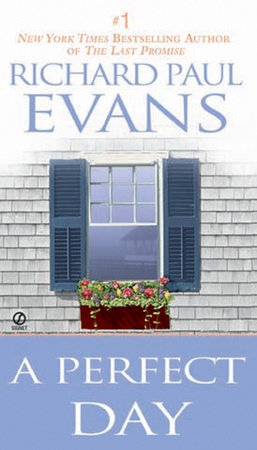Author Q&A
A Conversation with Anna Quindlen
Readers Circle: We love the premise of Rise and Shine — two sisters, New York City, and two very different career trajectories. In dreaming up this novel, what came to you first: the sisters, the setting, or Megan’s on-air slip? And how did your storyline evolve from there?
Anna Quindlen: I always begin a novel with a theme. Black and Blue, for instance, began with the theme of identity, Blessings with the theme of redemption. Rise and Shine grew out of constant thoughts about the disconnect in modern American life between appearance and reality. The more I thought about that disconnect, about how we’ve all come to believe that what looks good is good, the more I thought I should write about someone famous. That’s where the dissonance is greatest, it seems to me, and the public interest weirdest. And then I thought that the story would be best told by someone on the outside looking in. (Yes, I have read "Gatsby." Many many times.) That’s where the idea of the sisters eventually came into play: one the doer, the other the watcher. And over time I realized that in doing that I had given the story, which is essentially a comedy of manners, greater resonance than it might have had otherwise. I find that I almost always make the right decisions for purely accidental reasons.
RC: Bridget and Meghan’s relationship seems to strike a realistic chord with readers — they are each other’s number one fan and critic. Do you have a sister of your own, or any siblings? Did your experiences with them help shape Bridget and Meghan’s relationship? How?
AQ: I have a sister and three brothers, who fall between us on the birth order ladder. My sister and I agree that our relationship bears little resemblance to that of Bridget and Meghan. I am not that controlling, and she is not that compliant. Perhaps the one aspect of their relationship that is taken from our lives has to do with our jobs. My sister is a public school teacher. She makes far far less money than I do, and gets almost no public attention for her work. Yet I believe what she does is infinitely more important and more difficult than what I do. And certainly that mirrors Meghan’s feelings about Bridget’s job as a social worker.
RC: Do you believe in the birth-order convention, that the eldest child is a natural leader, who strives to please others and can be controlling, while the younger child is charming, but irresponsible, and looks to others for guidance and discipline? Did the study of birth order influence you in writing about the Fitzmaurice sisters? Does birth-order ring true in your own experience, or, do you think it’s a bogus label?
AQ: Well, I recently got an email from a very irate reader complaining that I was perpetuating birth order stereotypes in a way I would never dare do about gender, sexual orientation, and the like. So I’m more equivocal about answering these questions now! But my experience, as both the eldest in a large family and the mother of three, is that certain birth order conventions frequently apply. But maybe it’s more useful, and illuminating, to put it the way Aunt Maureen puts it in the novel: that successive children fill the spaces not already occupied. So if extrovert, or leader, or wild child, or whatever is already taken by one of your siblings, you may feel compelled–or free–to shape your identity otherwise. That’s certainly what happened with the Fitzmaurice sisters.
RC: Do you share any qualities and/or characteristics with Meghan? Bridget?
AQ: I am like both Meghan and Bridget. For years I had the sort of laser focus that Meghan had, and I have some of her rather cynical attitudes about the affluent around her. But, like Bridget, I have always been interested in trying to do something about the situation of the poor and disenfranchised in New York and the rest of America, in my case through the columns I’ve written.
RC: There are several interesting male characters in the book: Irving, the gritty cop, Edward, the smooth operator, Evan, the seemingly reliable yet duplicitous husband, and Leo, the upbeat, loveable young man. Who is your favorite among them, if you can pick one? And what qualities do you find most (or least) attractive in men in general?
AQ: Most female readers of a certain age seem to fall hard for Irving Lefkowitz. I can totally understand that; we’ve had it up to here with the sensitive man, and Irving is pure retro. He also really really likes women, and he really likes Bridget. I assume the reader shares that sentiment; I certainly do. But if I had to pick just one male character in the book as my personal favorite, it would be Leo. Some critics have suggested that he’s too good to be true, but I’ve met a fair number of teenage boys like him: smart, self-deprecating, truly inclined to do the right thing. Obviously one of the reasons I love him so is that he’s based, in part, on both my sons.
RC: Your portrait of New York is loving, yet you see the city–and its residents–for what they are. What do you love about the city? What do you hate? Can you ever imagine leaving New York, or is it home to you?
AQ: I made New York City a major character in this book because I thought it would make my task as a novelist easier. I’ve covered New York for more than 35 years as a reporter and columnist, and I know from long experience that it’s a story teller’s dream. It’s so polyglot, so vivid, so sharply drawn, that writing about it is as easy as finding a cab outside the Carlyle (or finding crack on certain corners in certain parts of the Bronx). But like any great character, part of its greatness, part of its power, is in its manifest flaws. New York is a city where it’s particularly hard to be poor, not only because everything costs twice as much as it does elsewhere but because over-the-top affluence is part of its identity. Yet it’s a city, as the novel makes clear, where affluence and want exist almost side by side. I hate the ways in which the rich are too often blind to their own conspicuous consumption. With what some East Side women spend on Botox and fillers a year, they could put a kid through parochial school, which could change a life completely. What I love is the flip side of that: that there is such enormous generosity. And I love other things, too, of course. I love that you can always get a decent Ethiopian meal. I like the places in Central Park in which you can feel as if you’re on top of a mountain, not in the middle of town. I like the way the subway can take you to the beach in a half hour, then back to the roar and glare of Times Square. New York is just more alive than any place else I’ve ever been. People never really leave. I can’t tell you how often in promoting this book, in Atlanta or Orlando or Minneapolis, someone has said to me, "I’m a New Yorker." They may have lived elsewhere for most of their life. But they’re still New Yorkers.
RC: Meghan goes off the radar in Jamaica. What do you do to “go dark” and have time for yourself to get away and regroup?
AQ: We have a house that’s in the middle of nowhere in Pennsylvania. I spend the entire summer there. It’s a good place to write because there’s really nothing else to do. After the third time rowing across the pond in the canoe, I think, well, hell, and I go inside and work. Occasionally there will be a bear or eagle sighting to break up my day. But it’s pretty easy for me to be off the grid in Manhattan, too. I’m not visually identifiable as Meghan is, so I don’t get much attention in the city. New Yorkers are so accustomed to the truly famous that they are very cool about it. Usually they just smile. It’s interesting for me to go to cities that have a small clutch of well-known writers. In those places they are a BIG DEAL. Here no one cares.
RC: Have you ever had a career-defining moment, either positive (like Meghan’s first big scoop), or negative, like Meghan’s on-air gaff? How did you grow from it?
AQ: I had one fairly substantial setback as a reporter when I was much younger. There was the perception that I had blown a major major story, although the truth was much more complicated than that. But, like Meghan, I came to understand rather quickly that the truth was less important than the spin. The perception was that I had certain glaring deficits as a reporter, chief being that I could write a pretty feature but was a washout with hard news. Over the space of several days I tried to scope out assignments that could exorcise that perception if I filled them in a satisfactory fashion. In this way I became a member of the New York Times City Hall bureau for two years. It wasn’t my dream job, but after two years of Council hearings, budget reports, and the like, many of which ended up on page one, there was no longer the sense that I couldn’t do hard news.
RC: CNN anchor Kyra Phillips’ left her microphone on as she chatted in the ladies room. What did you think of this story, which broke the same week Rise and Shine went on sale? Did you imagine such a thing could happen as you wrote the book?
AQ: I always say that if you can imagine it, it can happen. While several interviewers were skeptical about Meghan blurting out an obscenity into a "hot mike," I was certain such a thing was possible. Of course, after the CNN blooper, interviewers kept asking me whether I’d had it in mind when I wrote the book. Illustrating the simple fact that even well-connected reporters don’t understand the nine-month lag time between finishing a novel, and publishing one.



